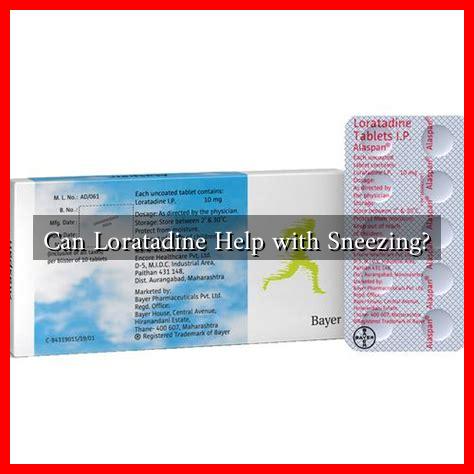-
Table of Contents
Can Loratadine Help with Sneezing?
Sneezing is a common reflex that can be triggered by various factors, including allergies, colds, and irritants in the environment. For many, sneezing can be a nuisance, leading to discomfort and social embarrassment. One of the medications often considered for alleviating sneezing, particularly when it is allergy-related, is Loratadine. This article explores the effectiveness of Loratadine in managing sneezing, its mechanism of action, and relevant considerations for its use.
Understanding Loratadine
Loratadine is a second-generation antihistamine commonly used to relieve allergy symptoms such as runny nose, sneezing, and itchy eyes. Unlike first-generation antihistamines, Loratadine is less likely to cause drowsiness, making it a popular choice for those who need to maintain alertness throughout the day.
How Loratadine Works
The primary mechanism of Loratadine involves blocking the action of histamine, a substance in the body that is responsible for allergic symptoms. When allergens enter the body, histamine is released, leading to symptoms such as sneezing, itching, and nasal congestion. By inhibiting histamine receptors, Loratadine can effectively reduce these symptoms.
Can Loratadine Help with Sneezing?
Yes, Loratadine can help with sneezing, particularly when it is caused by allergic reactions. Here are some key points to consider:
- Allergic Rhinitis: Studies have shown that Loratadine is effective in treating symptoms of allergic rhinitis, which often includes sneezing. A study published in the Journal of Allergy and Clinical Immunology found that Loratadine significantly reduced sneezing and nasal congestion in patients with seasonal allergies.
- Non-Drowsy Formula: As a second-generation antihistamine, Loratadine is less sedating than its first-generation counterparts, making it suitable for individuals who need to avoid drowsiness while managing their allergy symptoms.
- Long-Lasting Relief: Loratadine typically provides relief for up to 24 hours, allowing individuals to manage their symptoms throughout the day without the need for multiple doses.
Case Studies and Statistics
Several clinical trials have demonstrated the efficacy of Loratadine in reducing sneezing and other allergy symptoms. For instance, a randomized controlled trial involving over 1,000 participants found that those treated with Loratadine experienced a 50% reduction in sneezing episodes compared to those receiving a placebo.
Moreover, according to the American Academy of Allergy, Asthma & Immunology (AAAAI), approximately 30% of adults and 40% of children in the United States suffer from allergic rhinitis, making medications like Loratadine essential for managing these conditions.
Considerations and Side Effects
While Loratadine is generally well-tolerated, it is essential to consider potential side effects and contraindications:
- Common Side Effects: Some users may experience headaches, fatigue, or dry mouth.
- Drug Interactions: Loratadine may interact with certain medications, including some antifungal and antibiotic drugs. Always consult a healthcare provider before starting any new medication.
- Not Suitable for Everyone: Individuals with severe liver problems should use Loratadine with caution and under medical supervision.
Conclusion
In summary, Loratadine can be an effective option for managing sneezing, particularly when it is related to allergies. Its ability to block histamine receptors, combined with its non-drowsy formula and long-lasting effects, makes it a popular choice for many individuals suffering from allergic rhinitis. However, it is crucial to consult with a healthcare professional to ensure that Loratadine is appropriate for your specific situation and to discuss any potential side effects or interactions with other medications.
For more information on managing allergies and sneezing, you can visit the American Academy of Allergy, Asthma & Immunology.


